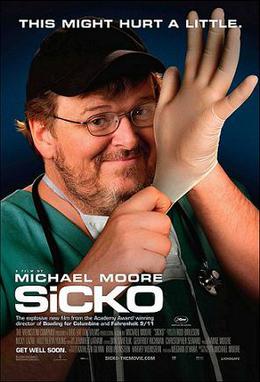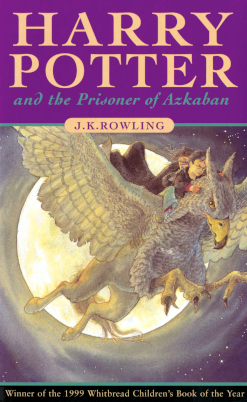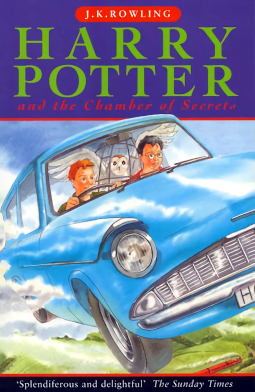Princeton Professor of History and Director of American Studies Sean Wilentz has a piece in the upcoming issue of Rolling Stone asking if George Bush is the worst president ever. The entire thing is worth a read, but here is an excerpt:
Now, though, George W. Bush is in serious contention for the title of worst ever. In early 2004, an informal survey of 415 historians conducted by the nonpartisan History News Network found that eighty-one percent considered the Bush administration a "failure." Among those who called Bush a success, many gave the president high marks only for his ability to mobilize public support and get Congress to go along with what one historian called the administration's "pursuit of disastrous policies." In fact, roughly one in ten of those who called Bush a success was being facetious, rating him only as the best president since Bill Clinton -- a category in which Bush is the only contestant.
The lopsided decision of historians should give everyone pause. Contrary to popular stereotypes, historians are generally a cautious bunch. We assess the past from widely divergent points of view and are deeply concerned about being viewed as fair and accurate by our colleagues. When we make historical judgments, we are acting not as voters or even pundits, but as scholars who must evaluate all the evidence, good, bad or indifferent. Separate surveys, conducted by those perceived as conservatives as well as liberals, show remarkable unanimity about who the best and worst presidents have been.
Historians do tend, as a group, to be far more liberal than the citizenry as a whole -- a fact the president's admirers have seized on to dismiss the poll results as transparently biased. One pro-Bush historian said the survey revealed more about "the current crop of history professors" than about Bush or about Bush's eventual standing. But if historians were simply motivated by a strong collective liberal bias, they might be expected to call Bush the worst president since his father, or Ronald Reagan, or Nixon. Instead, more than half of those polled -- and nearly three-fourths of those who gave Bush a negative rating -- reached back before Nixon to find a president they considered as miserable as Bush. The presidents most commonly linked with Bush included Hoover, Andrew Johnson and Buchanan. Twelve percent of the historians polled -- nearly as many as those who rated Bush a success -- flatly called Bush the worst president in American history. And these figures were gathered before the debacles over Hurricane Katrina, Bush's role in the Valerie Plame leak affair and the deterioration of the situation in Iraq. Were the historians polled today, that figure would certainly be higher.
Even worse for the president, the general public, having once given Bush the highest approval ratings ever recorded, now appears to be coming around to the dismal view held by most historians. To be sure, the president retains a considerable base of supporters who believe in and adore him, and who reject all criticism with a mixture of disbelief and fierce contempt -- about one-third of the electorate. (When the columnist Richard Reeves publicized the historians' poll last year and suggested it might have merit, he drew thousands of abusive replies that called him an idiot and that praised Bush as, in one writer's words, "a Christian who actually acts on his deeply held beliefs.") Yet the ranks of the true believers have thinned dramatically. A majority of voters in forty-three states now disapprove of Bush's handling of his job. Since the commencement of reliable polling in the 1940s, only one twice-elected president has seen his ratings fall as low as Bush's in his second term: Richard Nixon, during the months preceding his resignation in 1974. No two-term president since polling began has fallen from such a height of popularity as Bush's (in the neighborhood of ninety percent, during the patriotic upswell following the 2001 attacks) to such a low (now in the midthirties). No president, including Harry Truman (whose ratings sometimes dipped below Nixonian levels), has experienced such a virtually unrelieved decline as Bush has since his high point. Apart from sharp but temporary upticks that followed the commencement of the Iraq war and the capture of Saddam Hussein, and a recovery during the weeks just before and after his re-election, the Bush trend has been a profile in fairly steady disillusionment.
----------------
How does any president's reputation sink so low? The reasons are best understood as the reverse of those that produce presidential greatness. In almost every survey of historians dating back to the 1940s, three presidents have emerged as supreme successes: George Washington, Abraham Lincoln and Franklin D. Roosevelt. These were the men who guided the nation through what historians consider its greatest crises: the founding era after the ratification of the Constitution, the Civil War, and the Great Depression and Second World War. Presented with arduous, at times seemingly impossible circumstances, they rallied the nation, governed brilliantly and left the republic more secure than when they entered office.
Calamitous presidents, faced with enormous difficulties -- Buchanan, Andrew Johnson, Hoover and now Bush -- have divided the nation, governed erratically and left the nation worse off. In each case, different factors contributed to the failure: disastrous domestic policies, foreign-policy blunders and military setbacks, executive misconduct, crises of credibility and public trust. Bush, however, is one of the rarities in presidential history: He has not only stumbled badly in every one of these key areas, he has also displayed a weakness common among the greatest presidential failures -- an unswerving adherence to a simplistic ideology that abjures deviation from dogma as heresy, thus preventing any pragmatic adjustment to changing realities. Repeatedly, Bush has undone himself, a failing revealed in each major area of presidential performance.
---------------
No previous president appears to have squandered the public's trust more than Bush has. In the 1840s, President James Polk gained a reputation for deviousness over his alleged manufacturing of the war with Mexico and his supposedly covert pro-slavery views. Abraham Lincoln, then an Illinois congressman, virtually labeled Polk a liar when he called him, from the floor of the House, "a bewildered, confounded and miserably perplexed man" and denounced the war as "from beginning to end, the sheerest deception." But the swift American victory in the war, Polk's decision to stick by his pledge to serve only one term and his sudden death shortly after leaving office spared him the ignominy over slavery that befell his successors in the 1850s. With more than two years to go in Bush's second term and no swift victory in sight, Bush's reputation will probably have no such reprieve.
The problems besetting Bush are of a more modern kind than Polk's, suited to the television age -- a crisis both in confidence and credibility. In 1965, Lyndon Johnson's Vietnam travails gave birth to the phrase "credibility gap," meaning the distance between a president's professions and the public's perceptions of reality. It took more than two years for Johnson's disapproval rating in the Gallup Poll to reach fifty-two percent in March 1968 -- a figure Bush long ago surpassed, but that was sufficient to persuade the proud LBJ not to seek re-election. Yet recently, just short of three years after Bush buoyantly declared "mission accomplished" in Iraq, his disapproval ratings have been running considerably higher than Johnson's, at about sixty percent. More than half the country now considers Bush dishonest and untrustworthy, and a decisive plurality consider him less trustworthy than his predecessor, Bill Clinton -- a figure still attacked by conservative zealots as "Slick Willie." Read the rest... |

















Comments on "Worst President Ever?"
-
 arvindh said ... (4/20/2006 09:34:00 AM) :
arvindh said ... (4/20/2006 09:34:00 AM) :
-
 Dan Trabue said ... (4/21/2006 09:27:00 AM) :
Dan Trabue said ... (4/21/2006 09:27:00 AM) :
post a commentGood one! By the way try googling for the word "Failure" and hit the button "I'm feeling Lucky" - you will be pleasantly surprised! Heard this through a fellow blogger.
"How does any president's reputation sink so low?"
A better question is How does any president sink so low and yet remain in office?
On the flip side, Bush is easily the best president we've had this century - bar none.